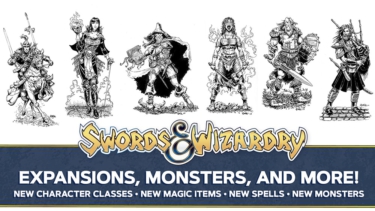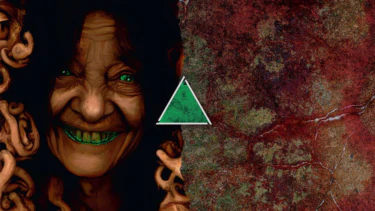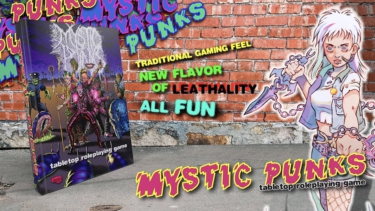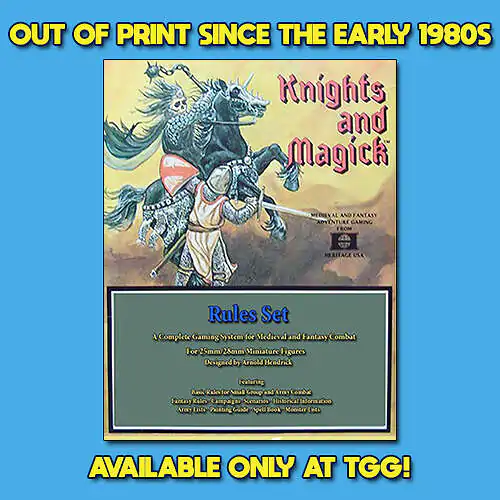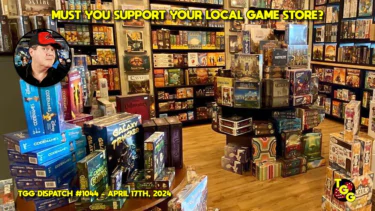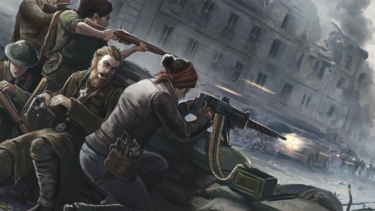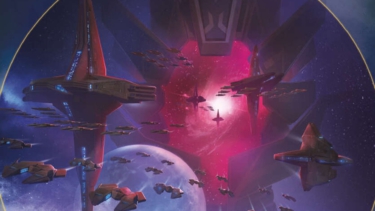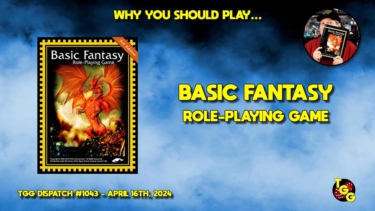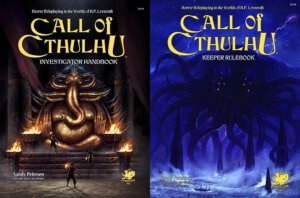
Publisher: Chaosium Publishing
Authors: Sandy Petersen, Mike Mason, Paul Fricker, Lynn Willis, and Keith Herber
Year: 2015
Players: It’s an RPG, so two or more
Ages: 14+ (My opinion)
Playing Time: Ongoing
Genre: Horror roleplaying based on the works of H.P Lovecraft
Pages: Keeper’s Rulebook 488 pages; Investigator’s Guide 288 pages
Retail Price: Keeper’s Rulebook hardcover $54.95, $27.95 in PDF; Investigator’s Guide hardcover $44.95, $22.95 for the PDF at DriveThruRPG
Frequent visitors to TGG know I’m a pretty big fan of Chaosium’s Call of Cthulhu and a huge junkie when it comes to anything having to do with H.P. Lovecraft and the Cthulhu mythos. CofC (as we’ve always liked to abbreviate the title) has been a long time favorite RPG of mine as I spent nearly two decades running adventures using the system. So after a far too long wait, I was eager to get my hands on the latest edition of CofC.
For anyone unfamiliar with the game, or the writings of H.P. Lovecraft, the setting is that of our very real world with fictional dark entities and the cultists who wish to bring these ancient and cosmic horrors to power. Granted I’m giving you a rather generic overview of the mythos but I’d rather not take away any pleasure from those who’ll experience Lovecraft’s stories for the first time. Though you’d have to be amazingly cloistered away from geek culture to not have any familiarity with Lovecraft – and more so the mythos – since a lot in the horror genre these days shows his influence in ways both large and small.
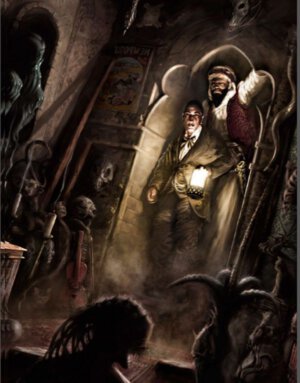
You can always check out this classic gaming piece about the system to learn more but we’re here to look at the 7th edition of the rules so it’s time to get down to business.
Most readers are going to be interested in the changes the new edition brings to the table and there are some which immediately meet the eye. First, the core system is being presented as having been broken down into two books rather than a single volume. It actually hasn’t but the folks at Chaosium seem to want you to think it has.
Second, for years English language editions have taken a real backseat art-wise to some of the amazing looking Spanish and Italian language books. Outside the U.S. readers were treated to loads of amazing full color illustrations while those here in the States only saw black and white, and sometimes rather lackluster, art. Thankfully in the seventh edition Chaosium has gone the way of full color artwork throughout.
Finally, this is no doubt the best indexed and presented of the editions so far. This might come as a backhanded compliment since it’s still far from perfect. At least we aren’t forced to dig through the Keeper’s book, as in the past, due to slap dash insertion of rule sections and new additions in what at times seemed almost at random.
There are quite a few changes in the mechanics of the latest incarnation of CofC and I’ll touch of what I feel most affect gameplay.
Character generation and core character attributes has been revamped. Although generating the values (3-18) of the core attributes is essentially unchanged, how they’re utilized in the game has changed. The attributes are percentile values so you’ll now see things like STR 65, INT 80, and CON 55. The reason for this is twofold; to make nearly everything in CofC based on percentile dice rolls and to allow the nearly universally vilified Resistance Table go the way of the dodo. Adjustments to how skill points are generated are present too to help prevent the starting characters from maxing points simply by having high Education and/or playing with an alter ego who’s approaching late middle age. Newly added to CofC is a system to generate interesting backgrounds for the character, although many times the results are random and oddly disconnected.
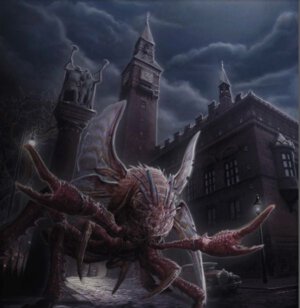
The biggest change to Call of Cthulhu, in my opinion, is how actions and using skills are resolved. Previously, the Investigators would roll percentile dice to determine success or failure with the possibility of rolling less than five percent of the overall skill value leading to a critical success. Critical failures normally took place on a roll of 96-100. Sometimes the Keeper (GM) would modify the roll with a positive or negative modifier due to the ease or difficulty of the task. Regardless if the player pulled off the action they were attempting or not, they were allowed one roll against the skill.
Now difficulty enters into the skill equation in a variety of ways. During character creation the player will have to calculate a couple more scores on their character sheet. There’s the Standard roll (base skill), the Hard roll (half the base skill), and Extreme roll (one fifth of the base skill) to begin with. Each of the skill descriptions have some examples of difficulty usage. A new bonus/penalty die mechanic is used as well, with the Keeper having the option of an additional D10 being rolled and using that result as the tens in the original percentile roll; a lower number assisting in an easy task and a higher number making a difficult task very much so. The Luck attribute can also be spent to improve a player’s die rolls. Lastly, players are now able to “push” die rolls and reroll a failure with the understanding a second failure will bring about something bad as opposed to just not getting something done.
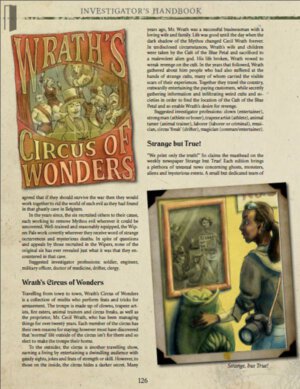
The concept of sanity has always played a big role in Call of Cthulhu and for the first time we get a fully fleshed out section which makes the attribute more than just a mental hit point mechanic players roll against as Investigators spiral further and further into madness. Sanity has probably been the most challenging aspect of CofC for players, and even experienced game masters, to game and this new section is especially welcome. The roleplaying of a character who is teetering on the brink of insanity can make for some extremely rewarding game sessions for everyone at the table and the new section includes a lot of good ideas on how to incorporate this into your gameplay.
Combat gets a makeover as well and it’s more streamlined than prior editions. The design philosophy of the past has been CofC is not a game where a lot of combat takes place. I completely understand this approach since the source material isn’t that of traditional pulp action and Lovecraft’s protagonists always read as characters that spend much more time with their nose in a book as opposed to sharpening a Bowie knife. Truthfully, I ran entire adventures where not a bullet was fired nor a fist thrown in fury and everyone around the table had a great time. Yet, the eruption of a slam bang free for all against a bunch of cultists or minor monsters can give a CofC gaming session a real punch. The team at Chaosium must have finally realized many more people would like to go the route of playing an Indiana Jones sort of character as opposed to Ms. Marple so the rules have been polished up regarding fisticuffs and flying lead.
Call of Cthulhu has also received a much needed section devoted to the chase. You might think these rules come into play in order for the heroes to catch the baddies but the reality is, since there are many times the Investigators find themselves in situations where going toe to toe with the enemy will end in the characters death, this is more about fleeing danger. Sadly, as much as the system needs some well-defined mechanics to game these chases, the rules as presented are a complete mess. The new rules are bloated, confusing, and complete overkill. Personally, I’d toss them right out in any of my games.
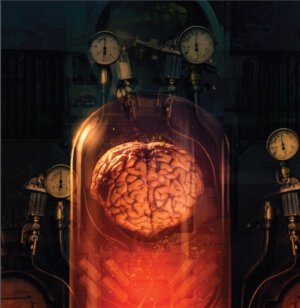
I think it’s also important to note this 7th edition of CofC holds the most useful information to date for Keepers new to the system. The designers know this an RPG which is quite unlike most on the market and great care has been taken to make transitioning to CofC and running interesting adventure as easy as possible. I have to give Chaosium kudos for taking the extra mile here.
In the interests of full disclosure, it’s certainly no secret that I’ve never been the sort of Game Master who kowtows to a rulebook. There’s never been a perfect RPG and I highly doubt if one will ever be made so I’m not above tearing a system apart and taking what I like and ignoring what I don’t. I think that’s the mark of a good GM and it isn’t as if I ever plan to run a convention game or tournament so I can tweak and change what I like. Honestly, I’m more apt to find interest in an RPG with an exciting theme and setting rather than a clean running system with a boring backstory. Of course, I also believe rolling dice should be a last result to determine the outcome of an adventure as opposed to driving the action of an RPG tale.
One last item, before I sum up my thoughts on this new edition, is the style and tone of the books. Over the past couple of years I’ve had the impression there’s a bit of a divide within the creative management at Chaosium; seemingly the new guard is clashing with the old guard and CofC is a prime example of this gulf. Some sections read as if aimed at the 21st century sensibilities of modern roleplayers while other sections come across as steeped in the mechanics and thought processes of the early 1990’s. Still other areas of the books are seemingly lifted verbatim from sourcebooks released nearly thirty years ago. This leads to a sense of discombobulation in style and tone within both the core books. Don’t get the impression the books are somehow less accessible or a grind to get through, because of the strange mismatched tone, since they’re still mighty entertaining reads.
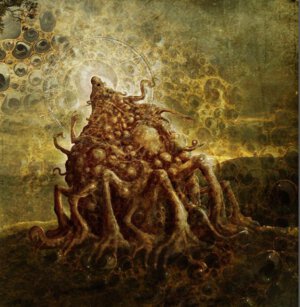
How critical owning Call of Cthulhu is will mainly depend on the sort of players who’ll be gathering around the table. It’s doubtful people that are more comfortable with a game style which is more a collaboration between the players and GM to craft stories on the fly are going to think much of the system. Truthfully, I can’t see how it’s possible to create a memorable session of horror roleplaying with that style of play anyway. For those who are a touch more old school, and like to have a GM firmly take the reins of an adventure the players can all jump aboard, will find CofC can provide a hell of a lot of engrossing and macabre fun.
Things become a lot trickier when answering if those who already own previous editions should run out and purchase the new books. Personally I would say if you’re playing with worn but well-loved editions up to the fourth then you really should pick these up, even if only in PDF. If you happen to have either the fifth or sixth edition, and you’re not a diehard completist, you might want to see if a friend has a copy and peruse that before making up your mind.
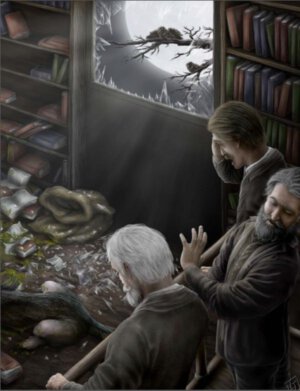
Overall I like some of the changes, dislike others, and wonder what was the point of a few more. Yet even with the variety of warts I still think Call of Cthulhu is excellent and my go to choice for roleplaying in the Lovecraft Mythos. I don’t think the 7th edition is the complete reworking of the system that it needs but more along the lines of a new coat of polish. Hopefully the future holds an eighth edition which will finally do the work that needs to be done. Truthfully though I still think CofC is an essential read for Game Masters of all stripes even though all the great work currently being done by companies like Pinnacle Entertainment, Evil Hat Productions, and Pelgrane Press (yes, I’ve warmed to Trail of Cthulhu a bit more since my original review) with horror gaming or bringing horror to their generic RPGs might make Call of Cthulhu a little less essential than before.
TGG SCORE - 9.1
9.1
While this certainly isn't a definitive edition of the game it's the most complete to date. Overall I like some of the changes, dislike others, and wonder what was the point of a few more. Yet even with the variety of warts I still think Call of Cthulhu is excellent and my go to choice for roleplaying in the Lovecraft Mythos.





